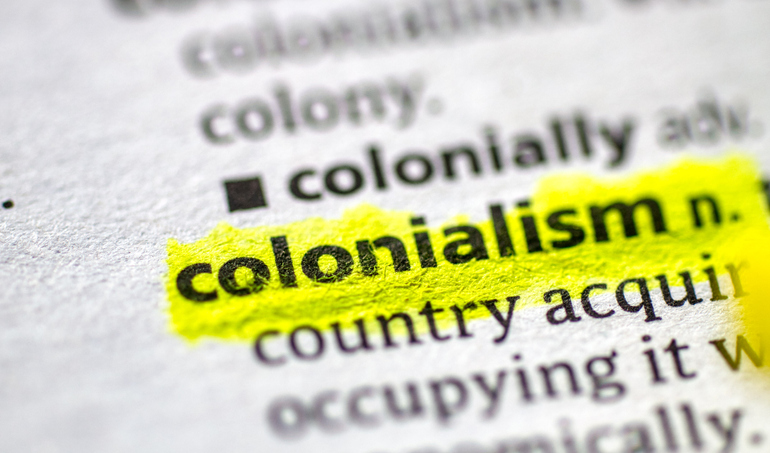On 20 October 2023, an Aboriginal teenager died in custody in Perth, Western Australia. Cleveland Dodd, 16-years-old, was found unresponsive in his cell in Casurina maximum security prison security prison. On 21 October 2023, a Palestinian mother, Alaa, and her three children, Eman (6), Faiz (5) and 7-month-old Sara, were killed by an Israeli strike in Gaza. It was Faiz’s fifth birthday. What is the connective thread between these disparate events?
Geographically separated by thousands of miles, these deaths appear to be completely unconnected. Yet, regardless of the different geographies and scales of violence that have produced these deaths, there are lines of connection that point to shared histories of settler colonialism and lethal regimes of violence.
Alaa was the sister of Ayman Qwaider, a Palestinian-Australian social justice researcher and activist who, only a few hours before he received the devastating news of the Israeli state killing of his sister and his nieces, had been speaking at a rally in Perth protesting the genocidal bombing of civilians in Gaza. These bombings are, in Amnesty International’s words, Damning Evidence of War Crimes as Israeli Attacks Wipe Out Entire Families in Gaza.
Ayman Qwaider has been working with an international project, Deathscapes: Mapping Race and Violence Across Settler States, which examines the transnational relations of settler and racial violence that generate serial Indigenous deaths in custody and asylum seeker and refugee deaths at the border.
In one of his contributions, Qwaider underscored the infrastructural relation between regimes of imprisonment and custodial deaths in Australia and Palestine:
“When I read about Mr Ward, an Indigenous man who died of heat-stroke after being transported in the back of a prison van from Laverton to Kalgoorlie in 2008, the fact that hit me the most was that the van in which Mr Ward was transported was managed by the prison security company called G4S. This very same security company runs the prison and detention centres in Israel where many Palestinian political prisoners are held: children, women, Palestinian Legislative Council members and university students. When I left Palestine for Australia in 2014, I saw the G4S signs on Israeli soldier uniforms as I was crossing the Erez checkpoint, a military crossing point that connects Gaza to Israel, and to the outside world.”
G4S is the world’s largest security company, incorporating PMSC Armor Group, a private military and security company. They have been“accused of profiting from war conflict, and political instability at the expense of security and human rights.” G4S, thus, emerges as a nodal point that connects two seemingly disparate sites and deaths within structural networks of settler violence. Non-state actors such as G4S contribute to the maintenance and consolidation of regimes of settler state power in both occupied Palestine and so-called Australia. The two settler states are characterised by escalating Indigenous rates of incarceration and deaths in custody. In the specific context of Gaza, so often described as the largest open-air prison on earth, the Gazan people killed at the hands of the Israeli state must qualify as nothing less than mass custodial deaths.
In a landmark article that establishes the key attributes of settler colonial states such as Israel and so-called Australia, Patrick Wolfe named the twinned logics that underpin these states: the elimination of Indigenous people and their replacement by settlers.
In an unsparing, brilliant and heartbroken analysis of the outcome of the 2023 Referendum on Recognition of Aboriginal and Torres Strait Islander Peoples, the Department of Indigenous Studies Macquarie University, writes: “What we are witnessing [in the October 14 Referendum result] is . . . the continuation of the violence of settler colonialism and the ongoing practice of the ‘logic of elimination’, in this case through the settler colonial imaginary of the democratic process of recognition.” The piece forensically dissects how underpinning the seemingly democratic and equal process of the Referendum, lauded by Prime Minister Albanese, is an implicit racial contract. This racial contract is premised on a fundamental inequality that “overtly excludes Aboriginal and Torres Strait Islander people and relegates us to a position defined by violence, exploitation, poverty, and denial of our full humanity.”
The logic of a racial contract that overtly and unapologetically relegates colonised Indigenous peoples to “a position defined by violence, exploitation, poverty, and denial of … full humanity” is precisely that which we see being exercised in that act of collective punishment in which Alaa and her children were killed. Thousands more in Gaza, children and adults, have been killed in the last few weeks, even as the West ritually reiterates its support for the democratic state of Israel. But what price democracy in a state premised on the unequal humanity of Indigene and settler?
Suvendrini Perera and Joseph Pugliese
Suvendrini Perera and Joseph Pugliese are the Chief Investigators of the Deathscapes Project funded by the ARC from 2016-2020. Suvendrini Perera is John Curtin Distinguished Emeritus Professor at Curtin University and Joseph Pugliese is a Professor in the Department of Department of Media, Communications, Creative Arts, Language and Literature at Macquarie University
